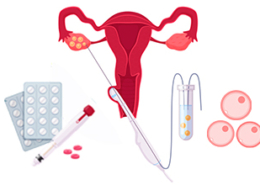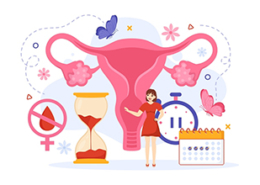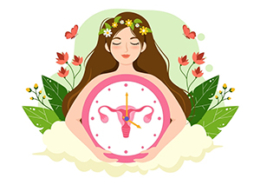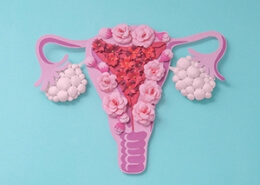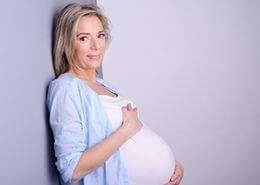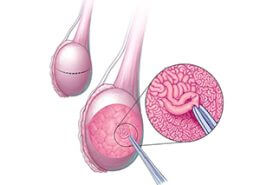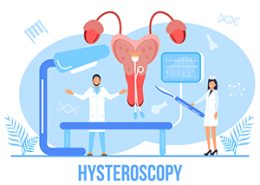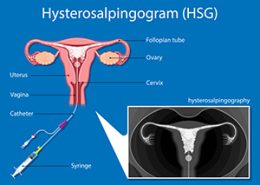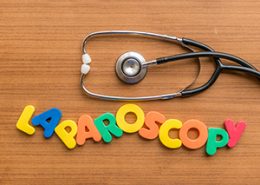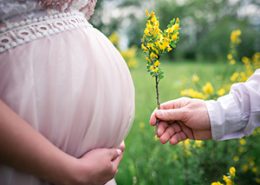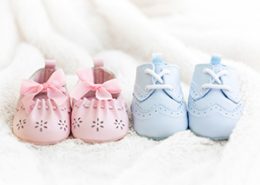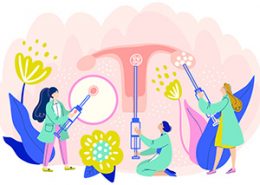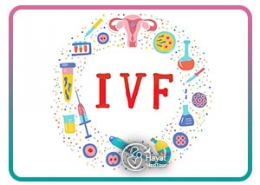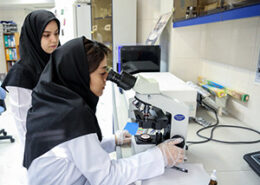Pregnancy after 40: Tips to increase your chances of pregnancy after 40
The desire to have a child after the age of 40 is one of the topics that has attracted the attention of many families in recent years. Due to the change in the lifestyle of people in most societies, pregnancy after 40 years of age has become one of the challenges for families.
The delay in pregnancy and women’s desire to have children after the age of 40 have various reasons. From a social and economic point of view, many women seek higher education, career advancement, and financial stability until they are older. Therefore, they do not have enough time and energy to think about starting a family and having children. Of course, medical reasons and many other factors can affect the delay in pregnancy and the desire of families to have children after the age of 40.
Postponing pregnancy to old age does not mean that women cannot conceive after the age of 40. Despite the advances in medical science, women can still have a chance to get pregnant naturally as well as by performing treatment methods such as IVF and using ovulation stimulation drugs. This article explores what you need to know about pregnancy after 40.
Fertility challenges after the age of 40

As women age, particularly after age 40, significant changes occur in the female reproductive system and the quality of eggs. These changes can reduce the chances of achieving a natural pregnancy. Key factors contributing to fertility challenges after 40 include a decrease in ovarian reserve, a decline in the quality of available eggs, and an increased likelihood of chromosomal abnormalities in eggs. As a result, women may experience issues such as infertility, miscarriage, and a heightened risk of having a baby with congenital anomalies. Learn more about the causes of low ovarian reserve and your chances of getting pregnant: Pregnancy with low ovarian reserve
The effect of age on pregnancy after the age of 40
As women age, their bodies experience changes that can lead to a decrease in fertility. For example, approximately 25% of women aged 20 to 30 become pregnant during a given menstrual cycle. However, this likelihood drops to only 10% for women over the age of 40. This statistic highlights the significant decline in fertility among women in this older age group. With increasing age, the quantity and quality of eggs decreases, and the possibility of chromosomal abnormalities in eggs increases, which directly affects their fertility.
Interestingly, women are born with approximately 1 million eggs stored in their ovaries. By the time they reach puberty and start menstruating, this number decreases to around 300,000. By age 37, only about 2.5% of the original egg count remains, totaling around 25,000 eggs. Generally, a lower ovarian reserve and a reduced number of eggs result in decreased chances of becoming pregnant.
As women age, the likelihood of their eggs having abnormal chromosomes increases, which raises the risk of miscarriage if they become pregnant. Additionally, older women are more prone to conditions such as endometriosis and uterine fibroids. These issues can negatively impact the uterus and make it more challenging to achieve a successful pregnancy.
The quality of a partner’s sperm is essential for achieving pregnancy. As men age, their sperm may swim more slowly towards the egg and may lose its ideal shape. However, unlike women, men can usually maintain good sperm quality until around the age of 60, which allows their fertility to remain relatively stable as they grow older.
How can you increase your chances of getting pregnant in your 40s?
To prepare for having a child in your 40s, it’s important to focus on enhancing your fertility. The first step is to consult with your doctor to create a plan. Key areas to discuss include diet and lifestyle choices, maintaining a healthy weight, and other relevant factors that can impact your fertility. Improving these aspects can significantly increase your chances of conceiving.
Here are some important measures to strengthen women’s reproductive systems and enhance the chances of pregnancy after age 40.
Lifestyle Modifications to Enhance Fertility and Support a Healthy Pregnancy

Maintaining a healthy and balanced diet is essential for reproductive health. A diet that includes a variety of fruits, vegetables, whole grains, low-fat dairy products, and lean proteins provides the necessary nutrients and energy your body needs. Key nutrients such as folic acid (folate) and iron are particularly important. Additionally, women are encouraged to take nutritional supplements, like vitamin D3, under a doctor’s supervision to address any potential vitamin or nutrient deficiencies. Learn more about the best supplements to boost fertility in women: Best Supplements to Boost Fertility in Women
Drinking enough water
Drinking enough water is crucial for maintaining overall health and promoting a healthy pregnancy. Staying hydrated helps regulate body temperature, aids digestion, and eliminates toxins. Dehydration can negatively impact ovarian function and egg quality. Therefore, everyone needs to drink an appropriate amount of water for their body while avoiding sugary, caffeinated, and alcoholic beverages.
Drinking enough water also helps reduce the risk of urinary tract infections, improve kidney function, and increase energy.
Maintaining a proper and healthy weight and maintaining hormonal balance
Maintaining a healthy weight and hormonal balance is essential for fertility. Both obesity and being underweight can negatively impact reproductive health. Keeping your body mass index (BMI) within the normal range of 18.6 to 25 can help regulate hormones and improve ovarian function. To achieve and maintain a healthy weight, it is important to incorporate regular physical activity into your routine, alongside a balanced diet. Consider exercise an integral part of your lifestyle.
It should be noted that to calculate your BMI, you can divide your weight in kilograms by your height in meters to the power of 2. You can use this BMI calculator to check your BMI.
BMI Calculator
Enter your details below to calculate your Body Mass Index.
Your BMI is ()
Avoid tension and stress
Chronic and excessive stress can negatively affect the reproductive system and reduce the chance of pregnancy. Therefore, women should relax more and reduce stress through activities such as worshiping God, meditation, yoga, massage, spending time in nature, watching movies, reading books, walking, and anything that makes them feel good, to improve mental health and increase Help your chances of pregnancy. Of course, if the problem is too acute to be resolved by doing these things, it is recommended to consult a counselor or a psychologist.
The Impact of Sleep Quality on Pregnancy
Sleep Quality plays a crucial role in overall health and reproductive wellness. Sufficient sleep enables the body to repair itself. Sleep disruptions can lead to hormonal imbalances, heightened stress levels, decreased fertility, increased risk of miscarriage, and premature birth. Therefore, maintaining a regular sleep schedule and creating a peaceful sleep environment can significantly enhance fertility and improve women’s health.
Assisted Reproductive Methods for Pregnancy After Age 40

As women age, the quality and quantity of their eggs often decline, making pregnancy more challenging. However, recent medical advancements have introduced various treatment options that can enhance the chances of conception for women over 40. These methods are designed to address fertility issues, improve egg quality, and facilitate the processes of fertilization and embryo implantation in the uterus.
Selecting the most suitable techniques for assisted reproduction and infertility treatment necessitates a consultation with an infertility specialist. The doctor considers various factors about the couple, including the woman’s age, the underlying cause of infertility, the overall health of both partners, the quantity and quality of the eggs, the condition of the sperm, and the couple’s personal preferences. Based on this assessment, the doctor will recommend the best approach for them.
Assisted reproductive techniques are also associated with complications, which may include pain, swelling, infection, multiple pregnancy, and miscarriage. The success of none of the methods of infertility treatment and assisted reproduction is not 100% guaranteed. The chance of success of treatment methods depends on the woman, age, the state of the uterus, the cause of infertility, the selected treatment method, the doctor’s expertise and skill, and a healthy lifestyle (proper diet, exercise, stress reduction).
In vitro fertilization (IVF)
IVF is one of the most common infertility treatments. This process involves removing an egg from a woman’s ovary and fertilizing it in a laboratory with the man’s sperm. Once fertilized, the resulting embryo is transferred back into the woman’s uterus, initiating the pregnancy process. IVF is particularly suitable for women who have issues with their fallopian tubes, experience ovulation disorders, or for couples where the man has a low sperm count. Learn more about tips for a successful IVF process: Tips to increase the chances of IVF success
Intrauterine insemination (IUI)
IUI is a method where, after preparation, male sperm is directly injected into a woman’s uterus using special tools. If the sperm is suitable, pregnancy may occur. This procedure is typically performed with the aid of ovulation stimulation drugs and is recommended for couples experiencing low sperm count or mild fallopian tube issues.
Egg freezing
Every woman should think carefully about “Do I want to get pregnant and have a child one day or not?” If her answer is positive and she does not want to get pregnant for any reason, it is better to get help from the egg-freezing method. In the egg-freezing method, healthy female eggs are collected and frozen at a young age. Then, at the right time (for example, after the age of 40 or whenever a woman wants to get pregnant), those eggs are used for fertilization and the formation of an embryo. Egg freezing is suitable for women who tend to delay pregnancy for any reason or are at risk of losing their fertility.
Embryo freezing
In this method, embryos created through in vitro fertilization (IVF) are frozen and later transferred to the uterus at the appropriate time. Freezing embryos is especially recommended for couples who plan to have several children in the future but are not yet ready to proceed, or for those who may be at risk of miscarriage for various reasons.
Hormone therapy
In some special cases, the doctor, at his discretion, suggests hormone therapy to regulate hormones and improve ovarian function. In this case, the couple can conceive naturally.
Egg donation: a solution to fulfill the desire of motherhood
As mentioned, the higher the age of a woman, the lower the probability of fertility, and assisted reproductive methods are known as one of the best options for pregnancy and childbearing in this era. We have reviewed several methods of assisted reproduction and now we want to talk about egg donation. IVF using donor eggs is suitable for couples who, for various reasons, such as early menopause, have a low ovarian reserve or the quality of their eggs is low and they are unable to conceive with their eggs.
It’s important to remember that using donated eggs is a significant and personal choice. This decision involves considering various medical, psychological, social, and legal factors. Ultimately, couples make their final decision based on their circumstances and beliefs.
In the IVF method using a donor egg, the donor egg is fertilized in the laboratory with sperm from the male partner. Once the embryo is created, it is transferred to the uterus (the male partner’s wife), initiating the pregnancy process. This approach utilizes young and high-quality eggs to enhance the chances of success and achieving pregnancy.
Although the chance of IVF success in women after the age of 40 when they use their eggs is about 15% or less, if at this age young donor eggs are used, the chance of IVF success increases to more than 50%. Learn more about the chances of success of IVF with egg donation: The success rate of IVF with egg donation
Pregnancy care after 40 years

Many women over 40 who are considering pregnancy may encounter unique challenges associated with having a baby at an older age. These challenges can arise from the physiological changes that occur after 40, as well as an increased risk of certain diseases and complications. However, there’s no need to worry! With the appropriate care and regular supervision from a specialist doctor, you can achieve a successful pregnancy and deliver a healthy child.
There are several important reasons why special caregivers are needed for pregnancies in women over the age of 40:
- Decreased Egg Quality: As women age, both the quantity and quality of their eggs decline, which increases the risk of chromosomal abnormalities in the fetus.
- Increased Risk of Certain Diseases: Pregnant women over 40 face a higher risk of conditions such as hypothyroidism, hyperthyroidism, gestational diabetes, and high blood pressure.
- Higher Probability of Premature Birth: The likelihood of premature birth is significantly greater in women over the age of 40.
- Increased Chance of Miscarriage: Women in this age group also experience a higher risk of miscarriage compared to those who are in their 30s. Learn more about common causes of miscarriage: Recurrent miscarriage, causes and treatment
These factors highlight the importance of specialized care for older expectant mothers.
Pregnancy Challenges After Age 40
As women age, the quality and quantity of their eggs tend to decline, which decreases the chances of becoming pregnant. Additionally, pregnancy after age 40 can pose certain challenges and risks. Below are some of the common challenges associated with pregnancy in this age group.
- Pregnancy blood pressure: the possibility of high blood pressure during pregnancy is much higher after the age of 40.
- Gestational diabetes: pregnancy at an advanced age increases blood sugar and can severely affect the health of the mother and child.
- Abnormal weight of the baby at birth: according to the studies, the risk of macrosomia (higher than normal weight of the baby at birth) increases with age.
- Placenta previa: this happens when the baby’s placenta partially or completely covers the woman’s cervix. In this condition during pregnancy and delivery, the mother will bleed a lot.
- Cesarean delivery: Women over 40 years of age are very likely to give birth by cesarean section and not naturally.
- Down syndrome: With age, the risk of having a child with Down syndrome increases. At the age of 20, 1 in 1480 children is born with this syndrome, but at the age of 40, this risk increases to 1 in 85.
General recommendations for pregnant women over 40 years old
Since pregnancy at an age over 40 can bring challenges, pregnant mothers at older ages need more care. Below are recommendations for care during pregnancy.

- Regular Doctor Visits: It’s essential to have regular appointments with both a gynecologist and an obstetrician for examinations, screenings, and any necessary tests. This is crucial for all pregnancies, especially for those after the age of 40.
- Healthy Nutrition: Maintaining a balanced diet is important. This includes consuming a variety of fruits, vegetables, whole grains, and protein, all under the guidance of a healthcare professional. Proper nutrition supports the needs of both the mother and the fetus.
- Light Exercise: Engaging in light, suitable exercises, under the supervision of a doctor, can improve blood circulation and strengthen the mother’s muscles, helping her prepare for pregnancy. –
- Adequate Rest: Ensuring sufficient sleep and taking regular breaks (including short naps during the day) is vital for providing the body with the energy required for pregnancy. –
- Management of Underlying Conditions: If you have any underlying health issues such as thyroid problems, diabetes, high blood pressure, or heart conditions, it’s crucial to manage these carefully. Be sure to discuss these conditions and any medications you are taking with your healthcare provider.
- Screening Tests: Undergoing screening tests to identify any fetal abnormalities, such as amniocentesis and ultrasound, is very important. These tests should be performed at specific times before pregnancy to ensure the health of both the mother and the fetus.
It’s important to remember that every pregnancy is unique, and the necessary care for each woman can vary significantly. As a result, treatments and advice cannot be standardized for everyone. The best course of action is always to consult a doctor for personalized guidance.
Conclusion on Pregnancy After Age 40
Getting pregnant after the age of 40 can be challenging, but with the right knowledge and support, you can enhance your fertility and maximize your chances of conceiving. It’s important to remember that each person’s journey is unique, so seeking professional advice is essential. In this article, we have reviewed all the key points related to pregnancy after 40. We examined factors that affect fertility, explored assisted reproductive methods and egg donation, discussed ways to increase fertility in older age, and outlined pregnancy care for those over 40. This information is aimed at helping you embark on your journey toward motherhood with greater knowledge and preparation.
References:
Pregnant at 40: What to Expect

